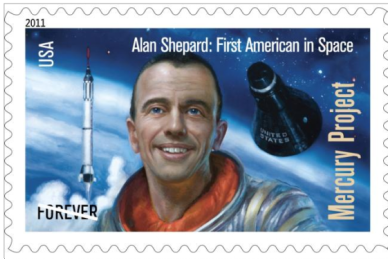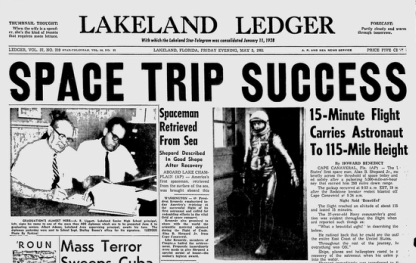May 5, 1961 - Alan B. Shepard becomes first American in space

Playing catch-up to the Soviet Union, America's space program launched its first manned mission into space 23 days after the Soviet Union sent a man up and orbited the Earth. Alan B. Shepard's 15-minute breach of the Earth's atmosphere aboard the Mercury spacecraft Freedom 7 was nonetheless a major achievement for the U.S. It told the world that the U.S. was not prepared to cede space exploration to its Cold War enemy, and that it was continuing to narrow the technological gap exposed when the Soviets successfully launched its Sputnik satellite in October 1957.

Still, the Shepard flight, launched from Cape Canaveral and splashing down into the Atlantic Ocean some 300 miles away, amounted to a silver medal at the time because it did not match the Soviet's orbit of the Earth by cosmonaut Yuri Gagarin on April 12, 1961. The U.S. would not match that feat until John Glenn's orbital flight on February 20, 1962. The Sputnik launch and the Gargarin flight are today seen as vital to the American program because they motivated the government to spend the billions of dollars necessary to win the biggest prize -- becoming the first nation to land a man on the moon -- on July 20, 1969. Read the story in the Lakeland Ledger: Space Trip Success • Read an analysis in Space.com: Could the U.S. Have Beaten the Soviets Into Space?
